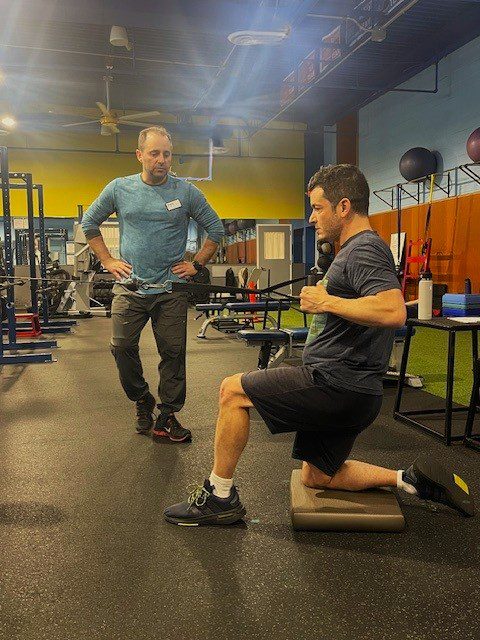By Mike Kubas
It’s about this time when the urgency to get into shape hits fever pitch, gym goers new and old are ready to get back at it and start building their summer bodies or are just looking to feel and move better. This is often a time when a lot of mistakes are made by gym-goers through misguided enthusiasm or an overly aggressive approach to their goals. I want to touch on a few of the common pitfalls I’ve seen and some ways to avoid those pitfalls.
1. Trying to change everything at once and sweating the small stuff!
The biggest and most common mistake I’ve seen in my career has been people trying to make a bunch of changes to their lifestyle all at once. They want to start going to the gym 5 times a week, change their entire diet, walk the dog more, do more yoga, spend less time on the computer… the list goes on. Trying to change all these things at once is a recipe to run yourself into the ground; it’s too overwhelming and just not fun. Choose 1, maybe 2 things that you can change over the next couple of months and slowly add something new only after you’ve maintained those changes. For instance, scheduling your gym time 3 times a week and adding a vegetable to dinner every night. These little changes might not seem like much, but they are the types of changes that can get the ball rolling. To build on this the next month you might start cutting out those unhealthy snacks and replacing them with fruit. Small changes made one at a time will begin to add up and create meaningful change and healthier habits. Changing everything at once will lead to frustration and disappointment!
2. Doing gym workouts that aren’t right for you.
Too often I see new gym-goers who are super motivated choose a random workout for “fat-loss” they found on the internet and just jump right into it. There’s a few things wrong with this. You’re going from 0 to 60 in the blink of an eye; the intensity needs to be scaled appropriately. The recovery from the exercise is where the real benefit and change comes from. Jumping into too intense of a workout is going to make that recovery more difficult, more painful and even lead to injury. Everyone has individual differences and limitations, and not every exercise is right for every individual. It’s important for long term success that the workout be individualized and appropriate for your end goal!
3. Overlooking the “other” benefits of exercising!
Goals are great to have, but often times are too number oriented. The real long-term benefits of consistent strength training are improved health and movement and improved quality of life. The ultimate goal for most should be to make resistance training a part of your routine. Our bodies adapt to the type of stress that is put on them, if there is not a stressor telling the body it needs muscle mass, the body won’t maintain or build muscle, it’ll lose it! Increasing muscle mass will improve body composition, meaning you’re going to burn more calories to build and keep the added muscle all while losing body fat! It also improves your overall health, strength, energy levels and even your mood!
4. Worrying about which supplements to use
Supplements are great and have their uses, but you can only get the full benefit of them if everything else in your nutrition and lifestyle is in check and where it needs to be. For the vast majority, it’s more beneficial to conquer the big obstacles of their lifestyle change like healthy nutrition and regular exercise before adding any type of supplements. If adding anything I usually recommend a protein supplement to be used as an additional protein source, NOT as a meal replacement. Save your money and focus on creating changes to your lifestyle that will last and improve your health.
5. Not Prioritizing Sleep!
A commonly overlooked aspect of fitness and recovery is sleep. Sleep is the time when your body recovers and repairs from whichever stresses were placed upon it. This includes everything from exercise to the common cold and it’s incredibly important to be sure you’re getting good, quality sleep. It’s especially important when beginning any type of exercise program because sleep is when your body is able to recover and rebuild from the workouts. It can help to create a routine around your bedtime and be as consistent as possible with it. Inevitably life gets in the way and can make it difficult, but it needs to be made a priority if you really want to see positive changes. Without proper sleep your body can’t bounce back properly from the stresses being put on it and that includes all the stresses, not just exercise! Lack of quality sleep will lead to feeling run down and unmotivated. Better sleep leads to not just better workouts, but better overall health and energy levels. So find a way to improve your sleeping habits and it’ll improve most everything else you’re working towards as well!





